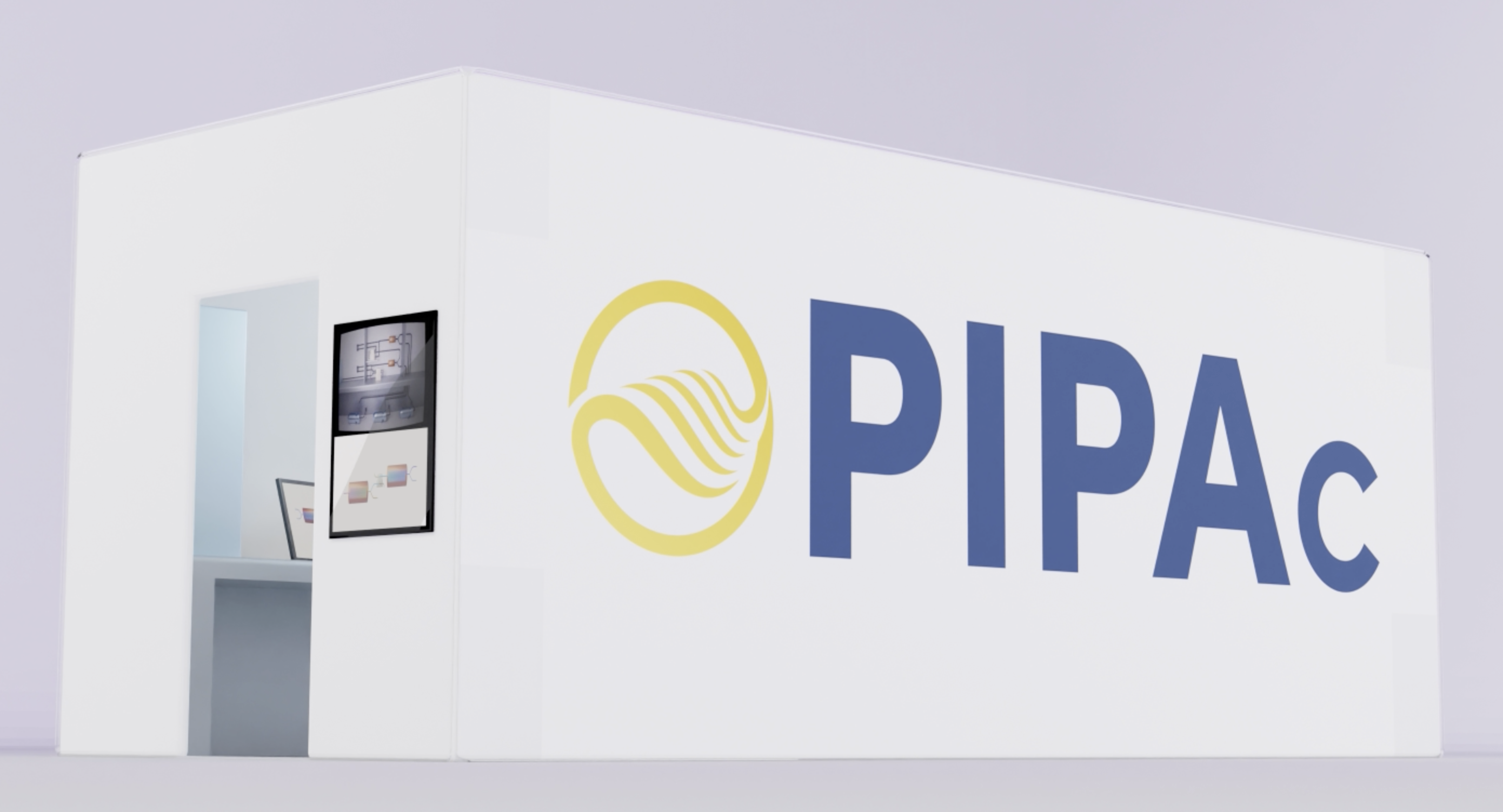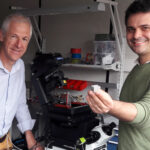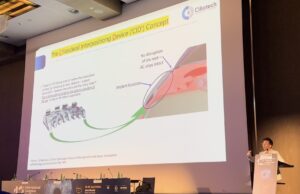Share this post:

With autonomous chemical micro-factories on premises, new system could address production disruptions and drug shortages
Using less energy and producing less chemical waste, solution creates safer, more efficient and sustainable chemical synthesis
Strasbourg, France, February 8, 2023 – Alysophil SAS, developer of a new industrial approach based on continuous flow chemistry together with artificial intelligence, today announces the first real-world demonstration of autonomous chemical synthesis in continuous flow controlled by a Deep Reinforcement Learning (DRL) agent (Artificial Intelligence – AI). This is a key step in the Bpifrance-backed PIPAc (Production Intelligente de Principes Actifs) project for Active Pharmaceutical Ingredient (API) production. This project was financed by the French government as part of the Relance Plan and the Programme d’investissements d’avenir.
Alysophil contributes to PIPAc with the development of an AI-powered continuous flow autonomous chemical synthesis solution. This technology, the first real-world demonstration of its kind, takes the advantages of flow chemistry one step further by adapting synthesis parameters to ever-changing environments, in real-time, therefore making them even more efficient. Using AI, it will enable the autonomous piloting of the production process, adjusting the reaction parameters in real-time to achieve the best possible outcome. The goal is to deliver a solution that is safer by design and that provides more efficient (less energy and lower waste) chemical synthesis thanks to a combination of flow chemistry and AI.
“With proof of concept for our AI solution, this is a dream come true for all the PIPAc consortium members, bringing us closer to our end goal of producing a fully autonomous industrial micro-plant,” said Philippe Robin, CEO and co-founder of Alysophil. “We strongly believe that bringing AI to continuous flow chemistry is the way forward for a greener chemical industry. Our next step for this project this year will be to work on chaining multiple reaction steps.”
Based on smart production of an active ingredient model, PIPAc aims to take API manufacturing one step further, by producing an autonomously piloted chemical micro-plant-like model for molecule production, powered by flow chemistry, AI and additive manufacturing (using 3D printing). Other partners in the PIPAc project are NovAliX, De Dietrich Process Systems and Bruker.
The compact micro-factory, the size of a shipping container (about 15m2 /161ft2), could impact the pharmaceutical market in several ways. By providing on-premises molecule production (from one T/y to ‘000T/y), it would help eliminate the need to rely on global supply chains. The Covid pandemic has shown that any disruptions in the supply chain can lead to overall economic decline. The micro-plant could also improve safety in production by using small quantities of intermediate chemicals, reducing the danger zone in case of accidental release. As a first step, PIPAc aims to be used specifically for API production in a pharmaceutical setting. Nonetheless, the platform could be designed for other molecule production, offering great potential for expansion to other applications.
From a global perspective, the advent of chemical micro-plants is synergetic with the goal of relocating the production of pharmaceutical agents in Europe. The PIPAc consortium aims to deliver an industrial demonstrator by 2024 and have a fully operating micro-plant by 2025.
Alysophil will be able to use these AI technologies in other markets, for applications in a micro-factory setting, such as cosmetics, fragrance and perfume or energetic materials.
About NovAliX
NovAliX is a drug discovery CRO that employs 250 staff. It provides services spanning synthetic chemistry, medicinal chemistry, chemoinformatics, in vitro pharmacology, structural biology, biophysics – including cryo-EM capabilities – and a fully-fledged DNA-encoded library platform.
NovAliX has also developed unique areas of expertise in batch and continuous flow chemistry as part of its research and development of new chemical processes.
www.novalix.com
About Bruker
Bruker, a high-performance scientific instrument and high-value analytical and diagnostic solutions provider, alongside Process Analytics Technologies, will contribute to monitoring the critical process parameters and quality attributes needed to optimize the continuous production process.
www.bruker.com
About De Dietrich Process Systems
De Dietrich Process Systems, as renowned experts in chemical process engineering and one of the most revered companies in the pharma sector, will build the compact production unit, integrating the above technologies and know-how, as well as the innovative solutions, into the continuous reaction modules and the supervision and automation system, ensuring that this leading-edge production unit is FDA and GMP compliant.
www.dedietrich.com
About Alysophil
Founded in 2018, Alysophil SAS is an SME creating industrial chemistry with a low environmental impact. It offers solutions for implementing a new industrial chemistry based on continuous flow, with a market-oriented approach. Alysophil uses synthesis from bio-based materials and artificial intelligence (AI) tools to accelerate the development process and generate new opportunities and better management of industrial facilities. Its solutions focus on chemistry with a reduced environmental impact, using biomimetic technologies; which leads to a new market strategy from design concept to production of the final molecule.
Based in Strasbourg, France, Alysophil employs 12 staff.
www.alysophil.com
To download documents, you can right-click on the links above and chose « Save link as… »







